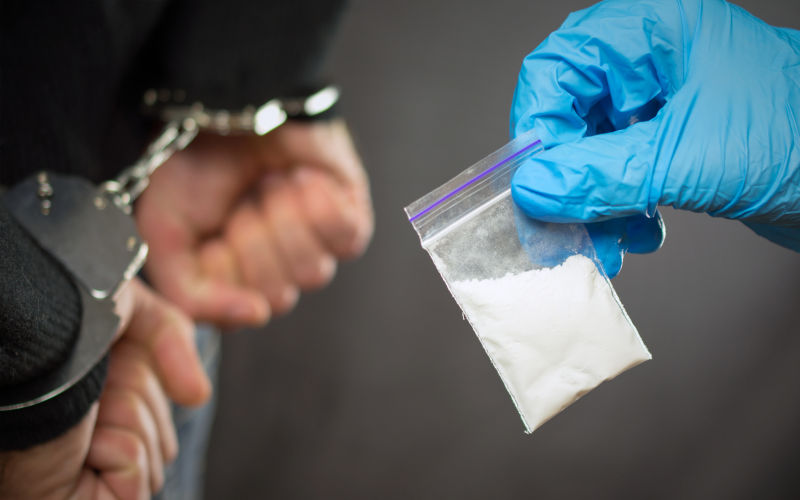Drug decriminalisation is not (yet) legalisation
October 25, 2022
The ACT has decriminalised the possession of small quantities of some prohibited drugs. The Liberal Opposition in the ACT says this radical reform will lead to more crime in the Territory. It will be chaos. The AFP worries that they will be busier. So why is this a move in the right direction that should be followed across the country?
For decades laws have been made in each of Australias nine legal jurisdictions prohibiting association with a very long list of drugs and prescribing criminal penalties for it. It would be hoped that when personal conduct that causes no direct harm to another is made criminal, the lawmakers would act on an evidence-informed basis and with some consistency. That has not occurred. Instead we have had an escalating war on drugs that has done nobody any good and many great harm including taxpayers.
After some historical failures with banning alcohol, our two most dangerous drugs nicotine and alcohol are legalised, regulated, controlled and taxed and there is no going back. Nicotine kills 21,000 Australians a year (that is 57 per day) and alcohol causes direct harm to many users and indirect harm to their associates. We put controls around both drugs and they have been effective in reducing and regulating consumption overall. And we tax them. We have learned to live with them.
By comparison, the national death rates from prohibited drugs are tiny and a large majority of users are not addicted or otherwise problematic most are not detected and prosecuted and carry on their lives; but those who are caught can suffer further harms.
Decriminalisation of drugs means leaving the prohibitions in place but removing or reducing the penalties to be imposed for breach. All drugs below certain thresholds were decriminalised in Portugal in 2000 and the policy has brought nothing but success in dealing with drug use and reducing criminal involvement. It is not legalisation, which is the removal of prohibition, even conditionally such as has happened in respect of cannabis in Canada, Switzerland, 19 of the United States and Washington DC, Uruguay, Malta, Germany and The Netherlands.
The ACT scheme, to come into effect in October 2023, maintains the criminality of association with some prohibited drugs but provides for them to be dealt with outside the ordinary criminal justice process. Policing of drugs will continue, including supply and trafficking, but persons apprehended for possession will face either a fine of $100 or, at their election, referral to an illicit drug diversion class, a diversion or a caution. Police are given the level of discretion that is appropriate to deal with the issue.
The amounts below trafficable quantities and to which the scheme will apply are: amphetamine (speed), cocaine, methylamphetamine (ice), MDMA (Ecstasy) and psilocybin (magic mushrooms) 1.5 gms; cannabis 50 gms; heroin 1 gm; and LSD 0.001 gm. The legislation will be reviewed after 3 years.
This treats this part of the drug scene as a health and social issue and removes the additional harms that may come from involvement in the criminal justice system (such as expense, disruption, effects on relationships, employment, education, travel and engagement in voluntary work).
The Canberra Liberals say it will lead to more crime and to carnage on the roads of the ACT. They say (improbably) that it wont reduce the number of people going into the criminal justice system. They say (equally improbably) that it wont enable more people to access treatment. They make no mention of Portugals success.
The Commissioner of the AFP worries that there will be a honeypot effect and that organised crime will target Canberra. That has not been the experience of Portugal. It might be noted that the ACT has the lowest number of persons proceeded against by police of any jurisdiction in the country (in 2020-21, 593 per 100,000 compared with the national jurisdictional average of 1,599). He told a parliamentary committee, reportedly, in the planning stage, that it could lead to narco-tourism It just makes it more difficult for us to combat the rise of cocaine, methamphetamine and heroin use and theyre not recreational drugs (sic).
Surveys had shown that Canberrans overwhelmingly support decriminalisation for such drug possession and the ACT already has a very high rate of diversion from the criminal justice system for drug possession. It also has double the national average of persons accessing alcohol and drug treatment programs.
Decriminalisation of this kind is an important first step in the rationalisation of drug laws, but it is only a first step. President Biden recently pardoned those federally convicted of possession of cannabis it applies to only about 6,600 people, none of whom is in prison but it is a politically very significant step.
The only rational, principled and effective, evidence-supported course to take is to legalise all drugs, regulate, control and tax them with a system of licences that would be difficult to obtain and easy to lose. The criminal law would still serve the purpose of dealing with those who might choose to operate outside the licensed system and criminal profits (and their application to other criminality) would suffer. Different regimes would be required for different drugs and it would be a complex and challenging system to create but it would not be beyond the wit of our community to do it and the gains, financial and otherwise, would be significant on balance. There are precedents to apply and reason to guide the way.

